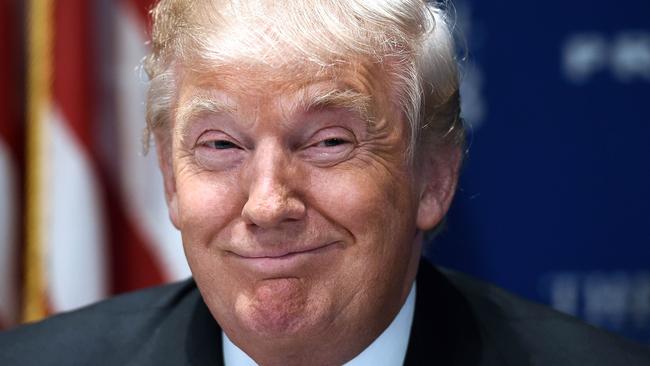Millions of workers willing to quit jobs to join Trump economy
AS MANY as three million Americans will quit their jobs in January alone as a booming Trump-powered labour rally means more opportunities.

HERE comes the Trump labour rally, firing on all cylinders — more jobs everywhere, and millions of US workers ready to quit for more pay and better employment opportunities, according to some analysts.
Despite December job gains coming in below expectations — at 156,000 — the hottest US labour market in a decade is being ignited by the incoming administration in Washington. As many as three million American employees forecast to voluntarily quit their current jobs in January alone, according to analyst projections.
That’s the largest January number expected to walk off the job since 2007 — an undoubted sign of more jobs waiting out there, the analysts say.
Of course, how long this pent-up Trump labour rally will persist is debatable, they add, but evidence of a renewed surge of jobs and turnover is mounting.
“You are going to have an exceptionally strong labour market this quarter — and the historical data supports this trend — backed at least by the perception that this new administration is going to create more of a friendly economic environment that will foster business growth,” according to David Lewis, chief executive of OperationsInc, one of the Northeast’s largest human resources outsourcing and consulting firms.
“And I would argue that this ‘quit’ data is one of the strongest leading indicators, a sign of strong job market confidence,” he said.
Lewis expects the “quit” numbers, compiled by the Bureau of Labor Statistics, to keep surging through the first quarter, as more workers, disgruntled by a decade of meagre or no pay raises, are lured by other employers on hiring sprees with promises of higher compensation.
Recruiters and job web sites already report a jump in new openings. “You can’t find the talented people to fill the positions that exist, and I have been doing this 40 years,” said Charles Muratore, a headhunter based in Manhattan.
The first quarter could see many unhappy campers ratcheting up pressure for higher pay, and a flight of talent foreshadowed by this mass exodus in January, as record numbers accept other work for higher comp in industries with strong job openings, said Lewis, a human resources professional who has closely studied the “quit” data during his 30-year career.
Already, average hourly earnings ticked up in December by 0.4 per cent, according to the Labor Department jobs report released January 6.
“Employees have been unhappy in terms of pay raises, bonuses or promotions — so that either motivates them into the market for better-paying jobs, or in many cases they have been motivated for months but are just waiting for their bonuses,” Lewis told The Post. “You haven’t, until now, been hearing a lot of companies say, ‘Hey, we’re going to give our employees six, seven or eight per cent increases’ — raises are still around the three per cent level.”
Lewis predicts between 2.1 million and three million workers will resign in January — as much as 50 per cent more than at the depths of the Great Recession in 2010, when some 1.6 million workers quit.
Evidence of this more-frenzied labour market also came in the wake of Donald Trump’s election victory. A BLS report released last month noted how the number of unemployed persons per job opening was at 1.9 back in December 2007, a ratio that peaked in July 2009 to 6.6 unemployed persons per job opening.
The ratio has since levelled off and remains between 1.3 and 1.4. “Look up the postings at some of the biggest US corporations — they are having a hard time filling the jobs,” Muratore said.
Lewis said present signs point to unemployment taking a dip from 4.7 per cent nationwide to settle at near or at four per cent, on the back of stronger gross domestic product.
“We have the Trump version of friendly economic policies — but we have to make some assumptions too. If, for example, Trump tees off China in the morning and we can have an international crisis, then all bets are off,” Lewis said.
This article originally appeared on New York Post and was reproduced with permission.



